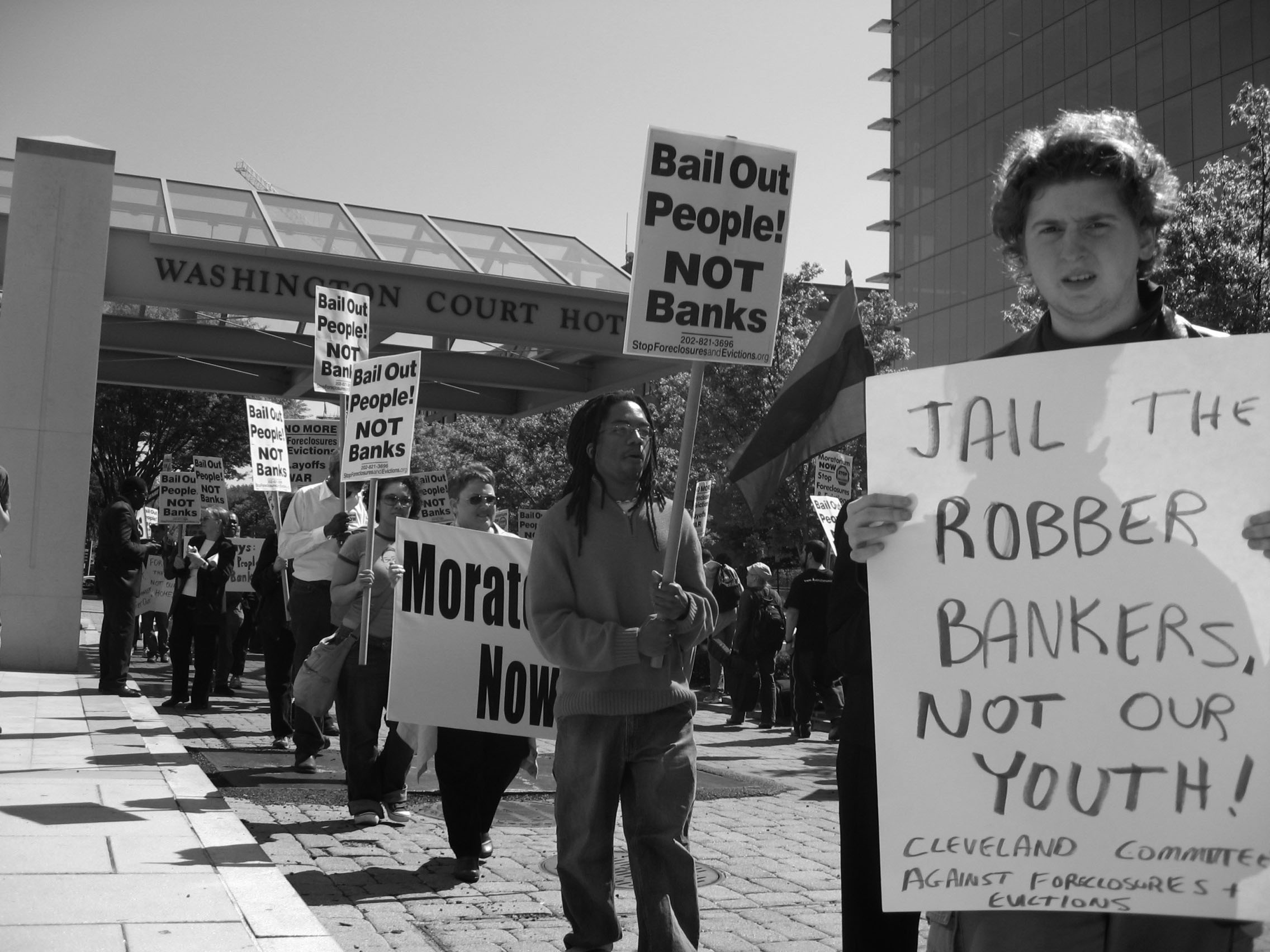Marxist theory
Nationalisation — a key demand in the socialist program

By Dave Holmes
John Bellamy Foster: Ecology and the transition from capitalism to socialism

Walk Against Warming, Sydney, 2006.
Photo by Alex Bainbridge/Green Left Weekly
By John Bellamy Foster
[This article, which first appeared in the November 2008 issue of Monthly Review, is a revised version of a keynote address delivered at the “Climate Change, Social Change” conference, Sydney, Australia, April 12, 2008, organised by Green Left Weekly. It is posted at Links International Journal of Socialist Renewal with the author's permission. Watch and listen to Bellamy Foster's presentation HERE. For more articles on Marxism and the ecology, click HERE.]
John Bellamy Foster: `Capitalism has reached its limits'

Postscript to "The Financialization of Capital and the Crisis"
Hugo Blanco: `No contradiction between my indigenous struggle and dialectical materialism'

Interview with veteran Peruvian Marxist Hugo Blanco, conducted by Yásser Gómez for
Fictitious capital and real compacts
By Anitra Nelson
Free download: Marxist Economics -- A handbook of basic definitions
Download Marxist Economics – A handbook of basic definitions (Resistance Books, 1998).
Ernest Mandel: An Introduction to Marxist Economic Theory (1967)
An Introduction to
Marxist Economic Theory (1967)
By Ernest Mandel
John Bellamy Foster: Can the financial crisis be reversed?
Interview with John Bellamy Foster, editor of Monthly Review, for Página/12 (Argentina).

